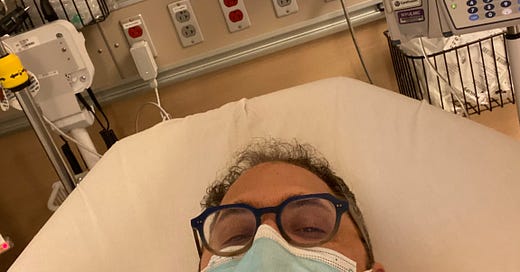The Uncomfortable Reality of Clinical Trials
How do we make clinical trials make sense to participants and study sponsors?
Welcome to The Frontier Psychiatrists newsletter—a daily enough health-themed publication. Today, an essay inspired by the work of Dan Karlin, M.D. He’s a friend, mentor, CMO at MindMed. He’s a scholar who also cares deeply about the patients he serves as a clinician and the research subjects who pave the way to novel treatments.




